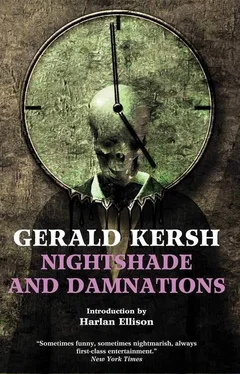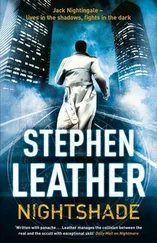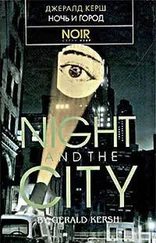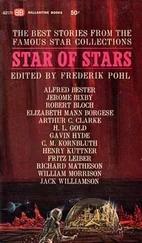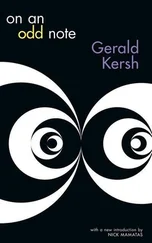Джералд Керш - Nightshade and Damnations
Здесь есть возможность читать онлайн «Джералд Керш - Nightshade and Damnations» весь текст электронной книги совершенно бесплатно (целиком полную версию без сокращений). В некоторых случаях можно слушать аудио, скачать через торрент в формате fb2 и присутствует краткое содержание. Город: Richmond, Год выпуска: 2013, Издательство: Valancourt Books, Жанр: Фантастика и фэнтези, на английском языке. Описание произведения, (предисловие) а так же отзывы посетителей доступны на портале библиотеки ЛибКат.
- Название:Nightshade and Damnations
- Автор:
- Издательство:Valancourt Books
- Жанр:
- Год:2013
- Город:Richmond
- ISBN:нет данных
- Рейтинг книги:3 / 5. Голосов: 1
-
Избранное:Добавить в избранное
- Отзывы:
-
Ваша оценка:
- 60
- 1
- 2
- 3
- 4
- 5
Nightshade and Damnations: краткое содержание, описание и аннотация
Предлагаем к чтению аннотацию, описание, краткое содержание или предисловие (зависит от того, что написал сам автор книги «Nightshade and Damnations»). Если вы не нашли необходимую информацию о книге — напишите в комментариях, мы постараемся отыскать её.
Nightshade and Damnations — читать онлайн бесплатно полную книгу (весь текст) целиком
Ниже представлен текст книги, разбитый по страницам. Система сохранения места последней прочитанной страницы, позволяет с удобством читать онлайн бесплатно книгу «Nightshade and Damnations», без необходимости каждый раз заново искать на чём Вы остановились. Поставьте закладку, и сможете в любой момент перейти на страницу, на которой закончили чтение.
Интервал:
Закладка:
“Tell me,” I said, “was your Sato tattooed behind? And if so, in what way?”
Without hesitation the colonel said: “A red-and-green hawk stooping between the shoulder-blades, a red fox chasing six blue-gray rabbits down his spine, and an octopus on the right buttock throwing out tentacles that went round to the belly. Why?”
Then I opened Titty’s pamphlet and put my finger on the relevant passage. The colonel read it and changed color. But he said nothing. I said: “This is the damnedest coincidence. There’s another thing. This so-called monster of Brighton scratched something on the door of the room where he was locked up, and the old parson took a pencil rubbing of it. Turn over four or five pages and you’ll see a copy of it.”
The colonel found the page. The spongy old paper was worn into holes, blurred by time and the dampness of lumber-rooms and the moisture of my body. He said: “It looks like Japanese. But no Japanese would write like that surely . . .”
“Remember,” I said, “that the Brighton monster scratched its message with one of its own teeth on the panel of an oak door. Allow for that; allow for the fact that it was weak and sick; take into consideration the grain of the wood; and then see what you make of it.”
The colonel looked at the inscription for ten long minutes, copying it several times from several different angles. At last he said: “This says: I was asleep . I thought that it was all a bad dream from which I should awake and find myself by the side of my wife . Now I know that it is not a dream . I am sick in the head . Pity me , poor Sato , who went to sleep in one place and awoke in another . I cannot live any more . I must die . Hiroshima 1945.”
“What do you make of that?” I asked.
The Colonel said: “I don’t know. I only know the bare facts about Sato because, as I have already told you, I was trying to find him. (a) He had a wife, and a home somewhere in Hiroshima. (b) He was in the Japanese Navy, and he went on leave in August 1945. (c) Sato disappeared off the face of the earth when they dropped that damned atom bomb. (d) This is unquestionably a picture of Sato—the greatest little wrestler the world has ever known. (e) The description of the tattooing on the back of this monster tallies exactly with Sato’s . . . I don’t know quite what to make of it. Sato, you know, was a Christian. He counted the years the Christian way. Hiroshima 1945. I wonder!”
“What do you wonder?”
“Why,” said the colonel, “there can’t be the faintest shadow of a doubt that Sato got the middle part of the blast of that frightful atom bomb when we dropped it on Hiroshima. You may or may not have heard of Dr. Sant’s crazy theories concerning time in relation to speed. Now imagine that you happen to be caught up —without disintegrating—in a species of air-pocket on the fringe of an atomic blast and are flung away a thousand times faster than if you had been fired out of a cannon. Imagine it. According to the direction in which you happen to be thrown you may find yourself in the middle of tomorrow or on the other side of yesterday. Don’t laugh at me. I may have been frying my brains in the tropics most of my life, and I may be crazy; but I’ve learned to believe all kinds of strange things. My opinion is that my poor little Sato was literally blown back two hundred years in time.”
I said: “But why blown backwards only in time? How do you account for his being struck by the blast in Hiroshima and ending in Brighton?”
“I’m no mathematician,” said the colonel, “but as I understand, the earth is perpetually spinning and space is therefore shifting all the time. If you, for example, could stand absolutely still, here, now, where you are, while the earth moved—if you stood still only for one hour, you’d find yourself in Budapest. Do you understand what I mean? That atomic blast picked little Sato up and threw him back in time. When you come to think of that, and remember all the curious monsters they used to exhibit in Bartholomew’s Fair during the eighteenth century—when you think of all the mermaids, monsters, and mermen that they picked out of the sea and showed on fairgrounds until they died . . . it makes you think.”
“It makes you think.”
“Do you observe, by the way,” said the colonel, pointing to the Reverend Titty’s pamphlet, “that poor little Sato was sick with running sores, and that his teeth were falling out? Radioactivity poisoning: these are the symptoms. Poor Sato! Can you wonder why he got desperate and simply chucked himself back into the sea to sink or swim? Put yourself in his position. You go to sleep in Hiroshima, in August 1945 and then— Whoof! —you find yourself in Brighton, in November 1745. No wonder the poor wretch couldn’t speak. That shock would be enough to paralyze anyone’s tongue. It scares me, Kersh, my boy—it puts a match to trains of thought of the most disturbing nature. It makes me remember that past and future are all one. I shall really worry, in future, when I have a nightmare . . . one of those nightmares in which you find yourself lost, struck dumb, completely bewildered in a place you’ve never seen before—a place out of this world. God have mercy on us, I wish they’d never thought of that disgusting secret weapon!”
You are free to argue the point, to speculate and to draw your own conclusions. But this is the end (or, God forbid, the beginning) of the story of the Brighton monster.
MEN WITHOUT BONES
We were loading bananas into the Claire Dodge at Puerto Pobre, when a feverish little fellow came aboard. Everyone stepped aside to let him pass—even the soldiers who guard the port with nickel-plated Remington rifles, and who go barefoot but wear polished leather leggings. They stood back from him because they believed that he was afflicted-of-God, mad; harmless but dangerous; best left alone.
All the time the naphtha flares were hissing, and from the hold came the reverberation of the roaring voice of the foreman of the gang down below crying: “Fruta! Fruta! FRUTA! ” The leader of the dock gang bellowed the same cry, throwing down stem after stem of brilliant green bananas. The occasion would be memorable for this, if for nothing else—the magnificence of the night, the bronze of the Negro foreman shining under the flares, the jade green of that fruit, and the mixed odors of the waterfront. Out of one stem of bananas ran a hairy gray spider, which frightened the crew and broke the banana-chain, until a Nicaraguan boy, with a laugh, killed it with his foot. It was harmless, he said.
It was about then that the madman came aboard, unhindered, and asked me: “Bound for where?”
He spoke quietly and in a carefully modulated voice; but there was a certain blank, lost look in his eyes that suggested to me that I keep within ducking distance of his restless hands which, now that I think of them, put me in mind of that gray, hairy, bird-eating spider.
“Mobile, Alabama,” I said.
“Take me along?” he asked.
“None of my affair. Sorry. Passenger myself,” I said. “The skipper’s ashore. Better wait for him on the wharf. He’s the boss.”
“Would you happen, by any chance, to have a drink about you?”
Giving him some rum, I asked: “How come they let you aboard?”
“I’m not crazy,” he said. “Not actually . . . a little fever, nothing more. Malaria, dengue fever, jungle fever, rat-bite fever. Feverish country, this, and others of the same nature. Allow me to introduce myself. My name is Goodbody, Doctor of Science of Osbaldeston University. Does it convey nothing to you? No? Well then; I was assistant to Professor Yeoward. Does that convey anything to you?”
Читать дальшеИнтервал:
Закладка:
Похожие книги на «Nightshade and Damnations»
Представляем Вашему вниманию похожие книги на «Nightshade and Damnations» списком для выбора. Мы отобрали схожую по названию и смыслу литературу в надежде предоставить читателям больше вариантов отыскать новые, интересные, ещё непрочитанные произведения.
Обсуждение, отзывы о книге «Nightshade and Damnations» и просто собственные мнения читателей. Оставьте ваши комментарии, напишите, что Вы думаете о произведении, его смысле или главных героях. Укажите что конкретно понравилось, а что нет, и почему Вы так считаете.
